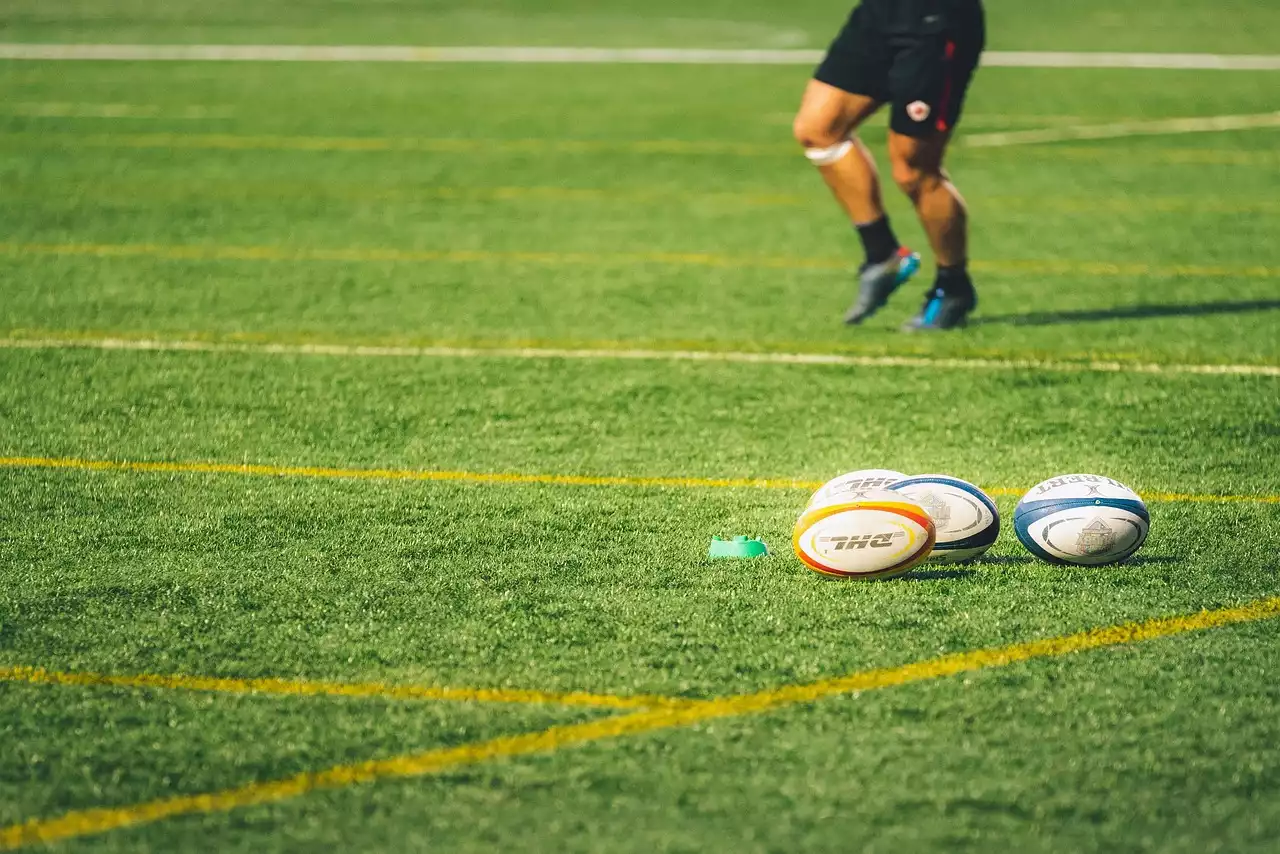Basics of Rugby Technique
The basics of rugby technique include passing, tackling, and kicking. Passing involves throwing the ball to another player or the ground. Tackling involves taking down an opposing player who has the ball and preventing them from advancing further. Kicking involves kicking the ball to a set target, either to score a goal or to gain ground.
Other aspects of the technique include running with the ball, which involves carrying the ball and running with it to gain ground and avoid defenders. It is important to practice these skills regularly to improve your technique and become a better player.
Improving Passing Skills
Passing is an essential skill in rugby, as it is the main way of moving the ball up the field. To improve your passing, it is important to practice regularly and focus on technique.
When practicing passing, it is important to focus on the grip and motion of the ball. The grip should be firm, but not too tight, and the motion should be smooth and consistent. It is important to practice with a partner to ensure that you are passing the ball correctly and accurately.
You should also practice passing different distances, as this will help you to become more accurate and gain more ground. It is important to practice passing with both hands, as this will make you a more versatile player and improve your overall passing skills.
Improving Tackling Skills
Tackling is an essential skill in rugby, as it is used to take down opposing players and prevent them from advancing further. To improve your tackling, it is important to practice regularly and focus on technique.
When practicing tackling, it is important to focus on the form and motion of the tackle. The form should be low and powerful, and the motion should be swift and precise. It is also important to practice with a partner to ensure that you are tackling correctly and safely.
You should also practice different types of tackles, such as front-on, wrap-around, and side-on tackles. This will help you become a more versatile player and improve your overall tackling skills.
Improving Speed
Speed is an important asset in rugby, as it enables players to gain ground and avoid defenders. To improve your speed, it is important to practice regularly and focus on technique.
When practicing speed, it is important to focus on the form and motion of your running. The form should be low and powerful, and the motion should be swift and precise. It is also important to practice with a partner to ensure that you are running correctly and efficiently.
You should also practice different speeds, such as sprints and jogs, as this will help you become a more versatile player and improve your overall speed.
Improving Reaction Time
Reaction time is an important skill in rugby, as it enables players to react quickly to situations and make the right decisions. To improve your reaction time, it is important to practice regularly and focus on technique.
When practicing reaction time, it is important to focus on the form and motion of your movements. The form should be low and powerful, and the motion should be swift and precise. It is also important to practice with a partner to ensure that you are responding correctly and quickly.
You should also practice different types of reactions, such as catching, passing, and tackling, as this will help you become a more versatile player and improve your overall reaction time.
Practicing Regularly
Practicing regularly is the key to improving your rugby technique. It is important to practice the basics of rugby, such as passing, tackling, kicking, and running with a ball. It is also important to practice different skills, such as speed, reaction time, and agility. By practicing regularly, you can become a better and more versatile rugby player.
It is also important to practice with a partner to ensure that you are practicing correctly and efficiently. This will help you gain the most benefit from your practice sessions and become a better player.
Strength and Conditioning
Strength and conditioning are essential for any athlete, and rugby players are no exception. It is important to focus on strength and conditioning to increase your endurance and power, as well as improve overall performance.
Strength and conditioning exercises should focus on developing the muscles used in rugby, such as the core, legs, and arms. It is important to practice activities that focus on agility, speed, and power, as this will improve your performance on the field.
It is also essential to practice stretching and warm-up exercises before and after each practice session, as this will help you to avoid injury and improve your performance.
Nutrition and Hydration
Nutrition and hydration are essential for any athlete, and rugby players are no exception. It is important to focus on eating a balanced diet and staying hydrated to maintain your energy levels and improve overall performance.
It is important to eat foods that are rich in carbohydrates, protein, and healthy fats, as this will provide you with the energy you need for practice and games. It is also important to stay hydrated by drinking plenty of water throughout the day, as this will help to keep you energized and focused.
Mental Preparation
Mental preparation is an important part of any athlete's training, and rugby players are no exception. It is important to focus on mental preparation to ensure that you are in the right frame of mind for practice and games.
Mental preparation should focus on visualization, goal setting, and relaxation. Visualization involves picturing yourself performing at your best and achieving your goals on the field. Goal setting involves setting achievable goals and developing a plan to achieve them. Relaxation involves taking time to relax and focus your mind before practice and games.
By focusing on mental preparation, you can ensure that you are in the right frame of mind to perform at your best and achieve your goals.








.png?size=50)

